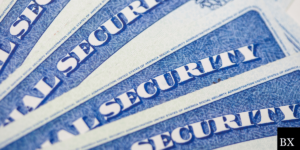Until 11 years ago, every notarization had to be conducted with both the signee and notary being physically present in the same room. In 2011, Virginia passed SB 827 and HB 2318, allowing notaries to perform their duties online remotely. Now, 45 states allow remote online notarization (RON), and the United States Congress is in the process of passing legislation that would permit RON nationwide.
In this article, we provide context surrounding the acceptance of RON and explain why its widespread adoption will increase demand for notary surety bonds.
What is a Notary?
A notary, also known as a notary public, is a public official tasked with ensuring that an individual signing a document is who they claim to be, is aware of the document’s contents, and is not signing the document under duress. Notaries are needed for various documents, such as contracts, wills, power of attorney, mortgage documents, surety bonds, etc.
What is Remote Online Notarization?
RON is the process of notarizing documents electronically when the notary and signee are in two different locations. RON involves notaries using software that allows them to see, hear and record the signee in real time, authenticate the signee’s ID, and apply electronic signatures and seals.
States differ in their regulatory approach toward RON, with some states enacting more stringent requirements, such as requiring RON technology platforms to be licensed and others choosing to remain neutral. However, all states that allow RON require notaries to adhere to the same standards when conducting RON as they would when conducting in-person ones.
Why are States Adopting RON?
States were forced to allow RON due to COVID social distancing mandates. Before 2020, 15 states had passed bills permitting RON. Today, that number sits at 41 with an additional 5 temporarily allowing them under emergency executive orders. Virginia proved that RON could work, and COVID forced states to rapidly adopt the practice so that notarizations would still occur in the face of social distancing requirements. Additionally, the House of Representatives recently passed the Secure Notarization Act of 2022 which creates federal standards for RON and allows its use in all 50 states and DC.
How Will the Adoption of RON Impact Demand for Surety Bonds?
We believe that adopting RON will increase the number of notaries and therefore increase the demand for notary bonds. Demand for notaries hit an all-time high in 2020, with searches for mobile notaries on the National Notary Association’s Find a Notary Public Page increasing by 1,750% yearly. While the number of notaries has marginally decreased over the past 5 years, we expect a reversal of this trend as more individuals enter the field to take advantage of the rising demand for notary services and the increasing convenience of the profession.
Additionally, the following states have passed laws requiring remote notaries to purchase a separate surety bond (or increase their existing bond’s amount) in addition to the one already required for persons that solely provide in-person notary services:
| State | Bond Amount for Traditional Notaries | Additional Amount for Remote Notaries |
|---|---|---|
| Florida | $7,500 | $25,000 |
| Illinois | $5,000 | $25,000 |
| Utah | $5,000 | $5,000 |
RON laws are relatively new, with most states enacting them within the past four years. As such, it is possible that other states will follow suit and revise their existing laws to create new bond requirements for remote notaries.
Which States Allow Remote Online Notarization?
The following states have passed laws permanently allowing RON:
- Alaska
- Arizona
- Arkansas
- Colorado
- Florida
- Hawaii
- Idah0
- Illinois
- Indiana
- Iowa
- Kansas
- Kentucky
- Louisiana
- Maine
- Maryland
- Massachusetts
- Michigan
- Minnesota
- Missouri
- Montana
- Nebraska
- Nevada
- New Hampshire
- New Jersey
- New Mexico
- New York
- North Carolina
- North Dakota
- Ohio
- Oklahoma
- Oregon
- Pennsylvania
- South Carolina
- South Dakota
- Tennessee
- Texas
- Utah
- Vermont
- Virginia
- Washington
- West Virginia
- Wisconsin
- Wyoming
Alabama, Mississippi, and Rhode Island currently allow the temporary use of RON, and Connecticut, California, DC, Delaware, and Georgia do not allow the practice.
If the Secure Notarization Act of 2022 becomes law, then RON will permanently be allowed in the states that have yet to permit its practice.
The Bottom Line
Allowing RON is a win-win-win for notaries, consumers, and insurance agents. Notaries can service more customers, consumers don’t have to deal with the hassle of coordinating a time and place to have their documents notarized, and insurance agents get to grow their books due to the increased demand for notary bonds.
Need an easy-to-use outlet to place notary bonds for your customers?
BondExchange makes obtaining a notary bond easy. Simply login to your account and use our keyword search to find the “Notary” bond in our database. Don’t have a login? Enroll now and let us help you satisfy your customers’ needs. Our friendly underwriting staff is available by phone (800) 438-1162, email or chat from 7:30 AM to 7:00 PM EST to assist you.
At BondExchange, our 40 years of experience, leading technology, and access to markets ensures that we have the knowledge and resources to provide your clients with fast and friendly service whether obtaining quotes or issuing bonds.













































